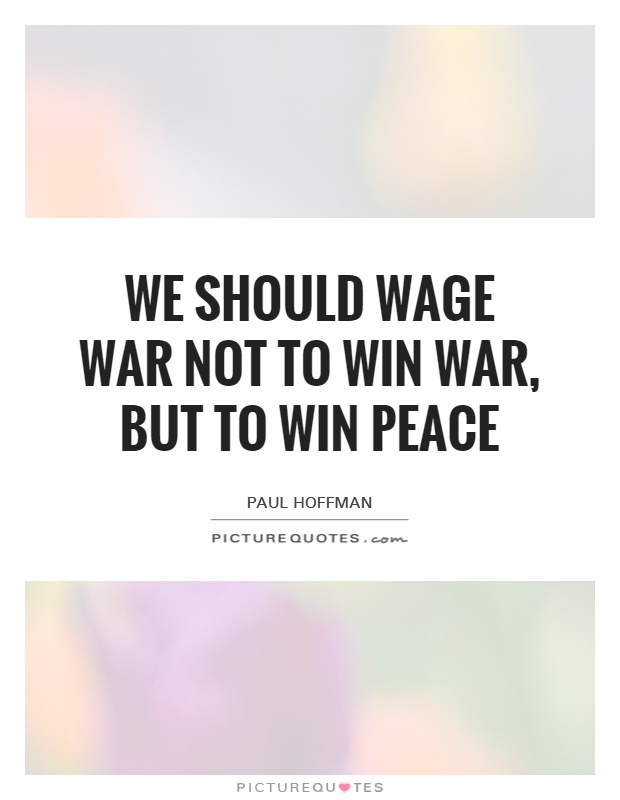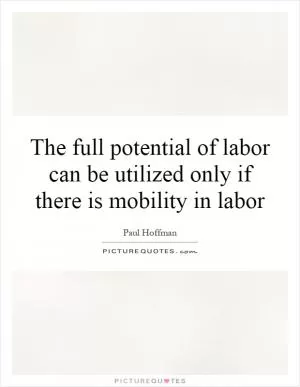We should wage war not to win war, but to win peace

We should wage war not to win war, but to win peace
Paul Hoffman, an American businessman and philanthropist, once said, “We should wage war not to win war, but to win peace.” This statement encapsulates the idea that the ultimate goal of any conflict should be to achieve lasting peace and stability, rather than simply seeking victory for its own sake. Hoffman’s words remind us that the true measure of success in war is not the defeat of an enemy, but the establishment of a just and sustainable peace.Throughout history, nations have engaged in wars for a variety of reasons, from territorial expansion to ideological differences. However, the aftermath of war often leaves a trail of destruction and suffering in its wake. In the face of such devastation, it becomes clear that the true challenge lies not in winning the war, but in building a lasting peace that can prevent future conflicts from arising.
Hoffman’s philosophy is particularly relevant in today’s world, where conflicts continue to rage in various parts of the globe. In many cases, the root causes of these conflicts are complex and deeply entrenched, making them difficult to resolve through military means alone. As Hoffman suggests, the key to achieving lasting peace lies in addressing the underlying issues that fuel these conflicts, such as poverty, inequality, and political instability.
One example of this approach can be seen in the aftermath of World War II, when the United States and its allies embarked on a program of reconstruction and reconciliation in Europe. Through initiatives such as the Marshall Plan, they sought to rebuild war-torn countries, promote economic development, and foster cooperation among former enemies. This effort not only helped to prevent the spread of communism in Europe, but also laid the foundation for a lasting peace that has endured to this day.












 Friendship Quotes
Friendship Quotes Love Quotes
Love Quotes Life Quotes
Life Quotes Funny Quotes
Funny Quotes Motivational Quotes
Motivational Quotes Inspirational Quotes
Inspirational Quotes